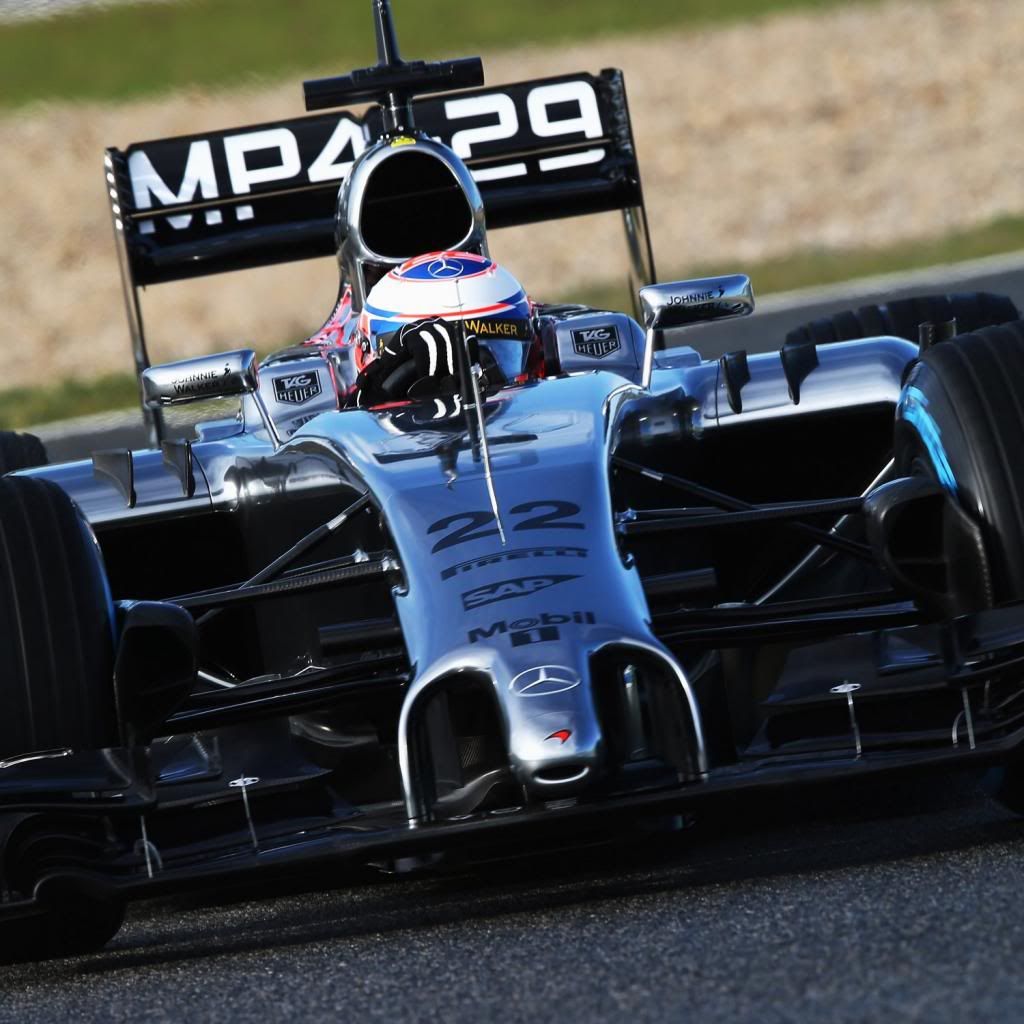richard_leeds wrote:Personally, I think the problem is that there is less and less uncertainty as the sport's professionalism and technology matures. There are no missed gear changes, no overheating engines, no failed gearboxes, cars don't slide off track. In the golden days we had 30-40% attrition, which to my mind indicates that there were an awful lot of variables to grapple with. there was bound to be more overtaking if there were so many variables and high odds of getting it wrong.
Unfortunately what we are seeing is natural consequence of evolution, the clock can't be turned back. As it happens, there was an interesting article in the Guardian this week about this
 http://www.guardian.co.uk/lifeandstyle/ ... -your-luck
http://www.guardian.co.uk/lifeandstyle/ ... -your-luck
you keep quoting this article, ........except you fail to understand what evolution is.
Evolution doesn't have a purpose. It does not mean something progressing to the point of perfection.
Organisms that are in any system are the organisms that survived. They were naturally selected by the environment - the ones that didn't fit in with their environment, died.
Go and read up on what evolution means.
secondly, f1 didn't become more reliable through any kind of natural process.........decisions were taken to A. limit cost. B. increase life of the engine. That forced manufacturers to build engines with higher tolerance levels and with power/torque not being the primary objective anymore. not to mention the engine design freeze.............
Yes, manufacturing techniques and quality controls will have played a part, but if everyone only had to make their engines last 1 race - i guarantee things would be the same as before, and you'd see a lot more engine blowouts again as manufacturers pushed things to the limit.
so again, this isn't some natural process.....this is due to people making decisions.
Thirdly - in most sports I can think of, as the money has pumped in and the professionalism has increased, it has improved the sport - the standards are higher all round, and to achieve in football or tennis or boxing or atheletics, you have to train much much harder due to the higher number of professionals about competing. Compare that to maybe 50 or 60 years ago when there wasn't so much money in sport, and you'd have hobbyists and semi amateurs competing against each other.
(you could argue that money has corrupted all these sports but thats a seperate issue......also motorsport IS money)
The article you have linked to simply talks about why a particular baseball record hasn't been broken...........in terms of the 'evolution of baseball' im sure its just as enjoyable as it ever was. The core fundamentals for baseball will not have changed for a century.
However, the core fundamentals of F1 have completely changed now, because the primary thing a racing driver has to do is to Go fast. Thats his primary skill, what the professionals of motorsport would have learnt to do from an early age.
And now? Hamilton: 'Im going as slow as I can'.
This hasn't come about through some natural progression of motorsport, it is by decisions taken by people who run the sport.
You also seem to be mixing up overtaking, which is one of the core elements of motor racing, with progression of competition. You also assume that motorsport will reach some kind of plateau, accept a quick glance at other categories and you'll see that the racing is as healthy as ever.
You also don't factor money into the equation, and the different in wealth the big teams have in comparison to the small teams
You also don't factor in the massive gaps in the field today...........which blows your theory right out the water.
Im babbling now but i cant be bothered to right coherent paragraphs, its not worth the time, so this is just a brain dump of thought, some food for you to feast on.



